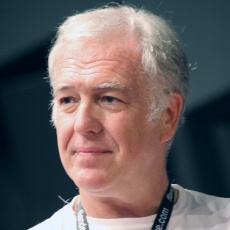 |
Geoff Andrew, BFI Head of Film Programme |
To celebrate the British Film Institute’s major retrospective of the work of Eric Rohmer, newwavefilm.com interviewed the season’s curator and Head of the Film Programme at the BFI, Geoff Andrew, who talked about the qualities that make Rohmer’s films so special and his own personal recollections of the director.
What first drew you to the work of Eric Rohmer and why do you like his films so much?
When I was a student back in the early 70s I went to see My Night With Maud, and I had never really seen a film like it. I’d seen art movies. I’d seen very intimate movies – in fact I'd got into movies because of Bergman – and this seemed to be covering much the same ground but with so much more humour. And with My Night with Maud I thought it was just fascinating that he was taking a philosophical question about faith and temptation and dealing with those metaphysical questions through physical means, not just through talk – but having a couple on a bed together and not knowing what to do about the situation. I just thought it was wonderful. And so then I started watching the films as they began to come out, and the more I watched the more I liked them.
You interviewed him on a number of occasions didn’t you?
Yes, four times.
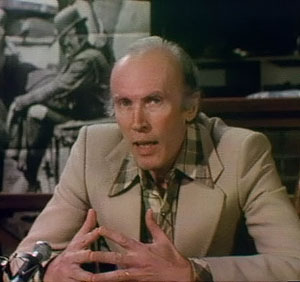 |
Eric Rohmer |
What was he like as a person?
I wouldn’t say he gave a lot away; I think he was very shy. The first time I turned up and walked into his offices, which had been left open, and I was calling through all these doors: “Hello, is there anybody there?” No answer. So I waited about ten minutes and eventually a young man came into the offices, and I said who I was, and he knocked on the door very close to where I’d been standing and said: “Eric, the journalist from London is here”. He’d been there all the time but wasn’t coming out until somebody else was there. And he gave very full and thoughtful answers to my questions, but most of the time he was looking towards the ceiling.
And he was like that more or less every time I met him, but he did get warmer each time I went. On the third visit he let me take a photograph, which was very rare. At first it was a case of: "Well, if it’s just for you”. And then he wanted to look at the photo – it was a digital camera – and I said okay. He [looked and] said: “Oh, take another one”, which he liked more. And then he thought about it and asked: “So what is this magazine you work for?” So I told him, and he asked: “But what does it do?” I said it was largely about film, but not just about film. He said: “Oh well, you can publish [the picture] if you want”. So there was quite a nice, warm side to him, although as I say, he was fairly shy.
What I found particularly interesting was, when we first met, I asked why he adopted his pseudonym, and he told me about his mother being very bourgeois and how it would have been unthinkable for him to work in cinema. And I said it was a bit like me because I had studied classics at Cambridge, but I came from a very working class background and my parents were very disappointed when I had gone on to work in film. And he immediately began to ask me about myself, which of course is what he ended up doing with so many people that acted in his films. He would invite them to tea and ask them about themselves, and then quite often construct films around that – or turn those into bits in his films. He certainly seemed quite curious about me. It was interesting. And when he did that he looked at me, instead of looking at the ceiling.
Can you talk about the background to this Eric Rohmer retrospective at the BFI? How you went about curating it and some of the films you’ll be showing and why?
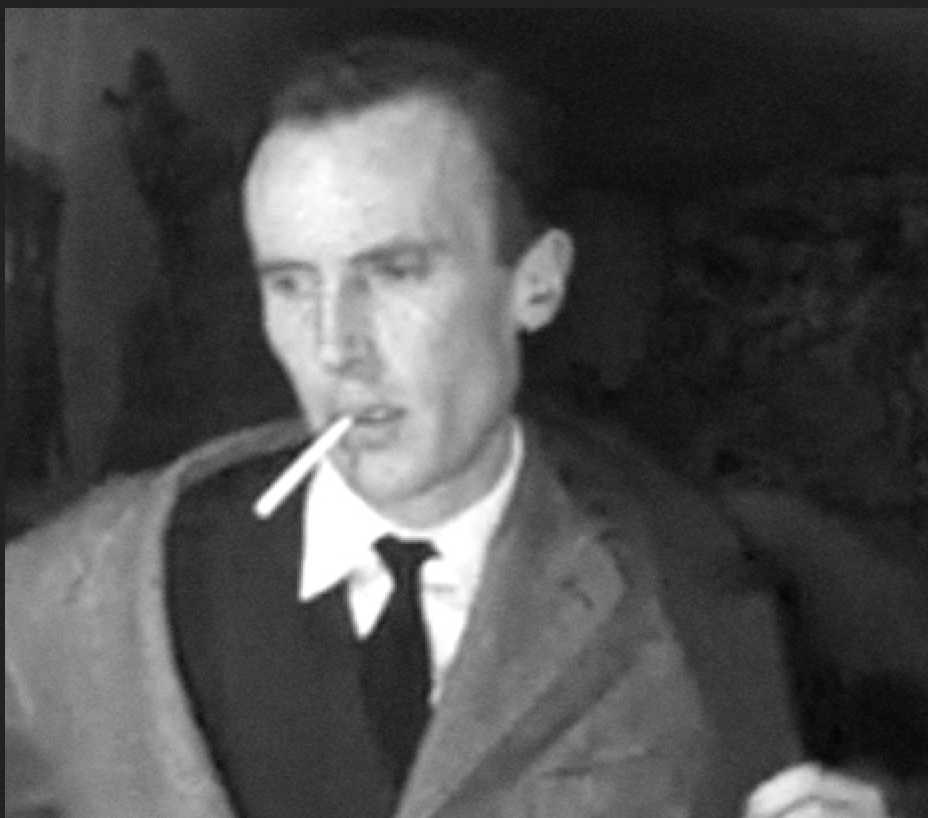 |
Rohmer acting in The Kreutzer Sonata, 1956 |
Well, we’d wanted to do it for sometime, and as it happened we had to make some changes in our programme. And in a way the Rohmer season seemed the most obvious thing to do for practical reasons because of these changes. But also it seemed the right thing to do because it is five years since he died, and we have learnt a lot about Rohmer since then which we didn’t know before, thanks to a very good biography that’s appeared in French. Also various restorations have been made of his films; some of the old 35mm prints were getting very tattered and there are now new digital prints. His old company Les Films de Losange worked on the restorations themselves and there have been some discoveries of films that have never played in Britain before, including two very early films that he made and acted in during the 50s: Bérénice and The Kreutzer Sonata.
We’re also showing a bunch of documentaries he made for television in the 60s – educational television – before he really embarked upon his feature-making career proper. It’s interesting because many of those documentaries have connections to the later features. So there’s a documentary about Perceval le Gallois; there’s one about Don Quixote; there’s one about landscape, and of course landscape was very important to Rohmer in his films. So it just seemed the right time.
What would you say to somebody who might be interested in watching Rohmer’s films for the first time in this season? What are some of the key characteristics of his work and why might it be rewarding for them to watch his films?
Well, my advice would be: don’t be taken in that they’re just about talk. There is a lot of talk in Rohmer but it’s very interesting talk usually. Also you need to use your eyes and brain as well as your ears because people often say things that they don’t really mean. And they might be saying something because they might be trying to deceive somebody. They might be saying it because they’re trying to attract somebody. They might be saying it because they’re completely deluded. And this means that Rohmer’s films are often very interesting psychologically and morally because he explores various discrepancies and dilemmas. But it also often makes them very funny because people often say something very earnestly about themselves but then do the exact opposite.
Rohmer really knew how to construct drama in the oddest way. So for someone who’s coming along: be patient, because at the beginning it may seem to not be going anywhere but gradually things fall into place, and then the suspense starts building. Nearly all of his films become very suspenseful as well as funny. It’s no accident that he co-wrote the first serious book about Hitchcock. In his own way he was himself a master of suspense, albeit a very different one.
Rohmer began his life in cinema as a critic and film theorist writing for publications like Cahiers du cinéma where he worked alongside Andre Bazin and other younger writers who would go onto make up the core of the French New Wave such as Jean-Luc Godard, Claude Chabrol, Francois Truffaut and Jacques Rivette. How do you think this experience influenced his film work?
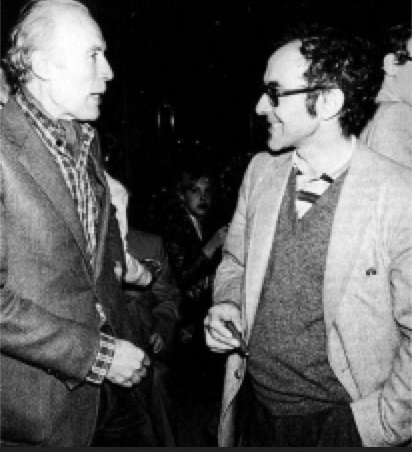 |
Rohmer and Godard |
Hugely, I think, but let’s not forget he was rather older than the other members of the Nouvelle Vague. By the time he got into filmmaking, he’d already been a teacher. Then he tried to become a writer and wrote a novel. And then he turned to reviewing and criticism. At the same time he was writing scripts, and a lot of his scripts were written many years, even decades, before he actually got round to filming them. So I think he was pretty well formed by the time he met Godard, Rivette, Truffaut and Chabrol. But I think their shared passion for cinema, their shared desire to shake things up, to do things differently, and to do a more honest sort of cinema, was collectively influential.
You know he had people around him who understood him. And Rohmer is often thought of as quite conservative in a way, but I don’t think he was. I think he just found out what he wanted to do very early on and more or less stuck with that. But in his own way, he was just as radical as Godard. He forged his own sort of cinema, which was unlike anybody else’s. A lot of his films can be seen as critiques of previous films, or tributes to previous films, as with Godard. And indeed Rohmer and Godard remained very close for many years. They didn’t see each other as much in later years, but I think even at the end of his life, if you went to visit Les Films du Losange you would press the bell and it would say Rohmer and below that you would have Godard/Miéville. So presumably they used to bump into each other on the stairs occasionally!
Rohmer once said: "You have to know how to go against the trend of the times". It seems to me there was something uncompromising in his approach to his art, which may explain why he took longer than any of the other major New Wave directors to make his name as a filmmaker. Would you say that was true, that he was uncompromising?
Well I don’t think he ever felt the need to compromise.
Most of his films were made extremely cheaply with very small crews. He rarely used stars. I mean some of his films were made with him, a camerawoman, a soundwoman, a couple of actors and the producer, who was usually a bit of a gofer anyway, and that was it. And he’d work on 16mm and always shoot on location when he could. His most expensive film was The Lady and the Duke, and he had to wait many years until the advent of digital technology to do that. But generally he made films that were very cheap. He set up his own company with Barbet Schroeder very early on, so he didn’t have to compromise. And he was lucky in that he made films that weren’t expensive and yet which found an audience, and that audience remained very loyal to him.
One interesting thing is that people often say that he started making films later than the other Nouvelle Vague directors but actually he didn’t. He made a short film in 1949, and then he made this feature (Les Petites filles modeles) in the early fifties which is lost, and which he more or less erased from history. Godard and Rivette worked on it, and Truffaut used to come and visit the set, but sadly it doesn’t exist. That could have been the first New Wave film.
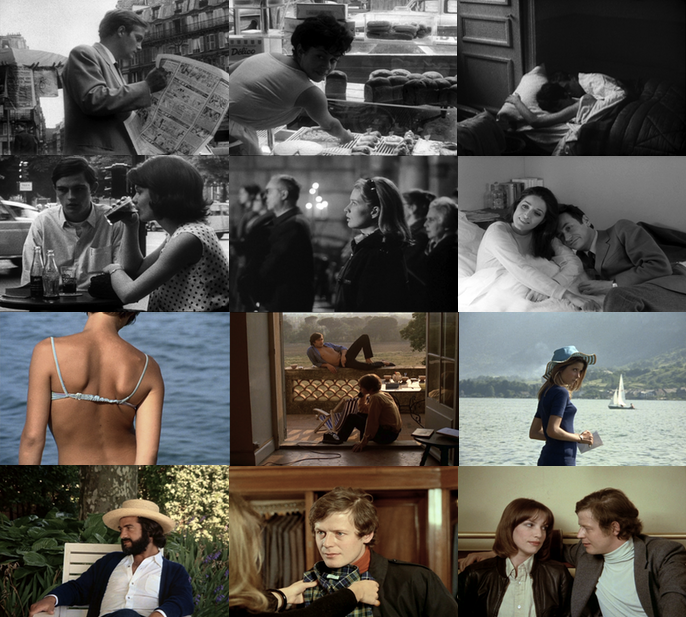 |
images from Rohmer's Six Moral Tales |
Success finally came to Rohmer in the mid to late 60s with the success of his first film cycle the Six Moral Tales and, in particular, My Night with Maud in 1969, which was nominated for a Best Foreign Language Film Oscar. Rohmer would go onto make two more multiple part film series and these are ultimately what he is best known for. Why do you think Rohmer grouped his films in this way, and why did audiences respond so enthusiastically to them?
Well he always said he did the first series because it made it easier to get the money to make them from producers. And the films did become more ambitious as they went along. But, of course, he’d already written those moral tales very early on anyway as stories. He just turned them into films. I suppose because he’d been successful with that he thought he could do it again. And it also created an appetite in the audience: if you’ve already seen Tale of Springtime and Tale of Winter, then you probably want to see the other two – if you’ve enjoyed them of course.
But it’s important to remember that he did make other films, because, although some of those films seem very atypical, they’re certainly not minor films. I’ve always thought that My Night with Maud is probably his greatest film, but I also think The Green Ray is a masterpiece, and I was bowled over when I saw Perceval le Gallois. And actually the film in German, La Marquise d’O…, is extraordinarily good. Even the late films are interesting in a way that most movies are not.
As you say, starting in the 1970s Rohmer made several period films, including the stylised Arthurian tale Perceval le Gallois, and at the end of his career he again returned to period films with works such as Triple Agent, The Lady and the Duke and The Romance of Astrea and Celadon. Although on the surface these films seem very different in style and subject matter to the contemporary-set films, there is something distinctly Rohmerian about them isn’t there?
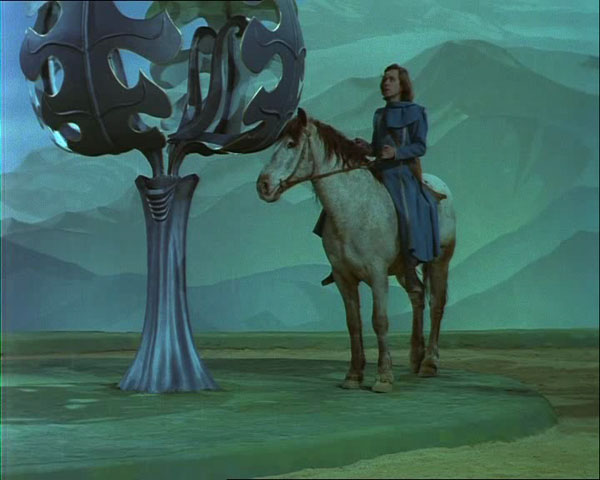 |
Fabrice Luchini in Perceval le Gallois |
Absolutely. I suppose the most outlandish is Perceval, but even there, Perceval – played by Fabrice Luchini, who was in so many of the films over the years – learns the dangers of talking too much, which is interesting. And he also undergoes a moral education.
But I think all of them, partly because they are based on stories that are not by Rohmer, and partly because they are set in a different world, inevitably look different. And that’s because he did exactly what he did with the other films, which was to try to be as realistic as possible. For him, realistically telling a story set in a different time meant asking yourself: how would people who were telling the story, or indeed hearing the story, have imagined the world given what they had? Hence the resort to medieval painting, or German romantic painting, or the extraordinary recreation of Revolutionary-era Paris using digital technology to recreate the look of paintings of the time. He didn’t have to do that of course with Triple Agent, he just went back to how Paris looked in the 30s.
The most interesting film, in a way, is the last film, The Romance of Astrea and Celadon, where he had a book written in the 17th century about 5th century Gaul but it’s made in the 21st Century. So what was he doing there? He was using lots of anachronisms to get us into the world as its writer and its original audience might have understood it.
In the 1980s Rohmer made his next film cycle, the six part Comedies and Proverbs, and this would be followed in the 1990s by the Tales of the Four Seasons. While his earlier films had mostly revolved around male protagonists these later films tended to focus more on female protagonists. Do you think there’s something unique in the way Rohmer presents the female perspective in his films?
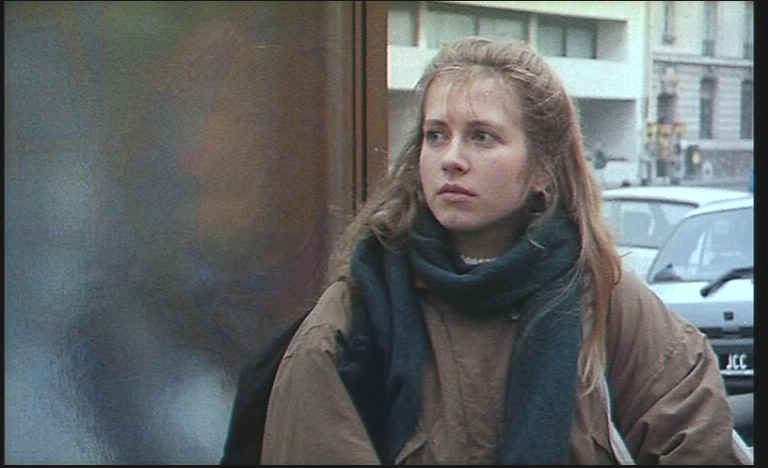 |
Charlotte Véry in A Winter's Tale, 1992 |
Well I certainly think he’s better at it than most men. I think he clearly loved women, in a very chaste way as far as we know. He was interested in them and admitted apparently that he felt he had quite a female side. Certainly, having met him, I can say he was a very gentle and shy person, not at all macho. He liked sport a great deal, but it wasn’t rugby, it was running and nothing violent.
I think he was really interested in what people wanted out of life. I think it’s wrong to present him as a romantic. His films often make us feel quite good, but sometimes they don’t, and [they] often end a little unhappily or certainly very ambivalently. His films are not romantic, and you could never really call them romantic comedies. They’re sometimes about people who are quite romantic, but they’re often about people who are not romantic at all. They are about people who are trying to find a sort of happiness, and that may involve finding someone to share one’s life with, so they’re always testing each other out. There are romantics in his films certainly – the woman in A Winters Tale is very firmly devoted to this memory of her holiday romance – but then there are other characters who are extremely pragmatic, and many of those are women. He differentiates between men and women but not in any big way. He avoids clichés; his films are far too detailed for that. There are no stereotypes in Rohmer.
Although by this time in his career Rohmer was a well-established director, rather than becoming more ambitious in the scale of his productions he purposely cut to a bare minimum the number of crew he worked with on his films and mostly worked on real locations. In this respect he seems to have stayed closer to the spirit of the original New Wave than some of the other directors in the movement.
Yes, I think that’s true. I mean none of them really betrayed themselves or sold out. I think Truffaut, who was in some ways the most successful, did go into bigger productions, and Chabrol a little bit. Rivette was very much his own man. But, I think, Rohmer, like Godard, remained committed to a certain very personal cinema. And obviously Godard changed quite a bit over the years, so his cinema changed, but it was always about engaging with the history of cinema anyway. Rohmer didn’t really change much at all over the years; he refined what he did. And while there are these atypical films, when you look at them closely they are not so atypical.
But it’s fascinating to see The Sign of Leo, which seems atypical in some respects, and which seems incredibly modern. Most films made at that time don’t seem anything like as modern as that film. I don’t know of another filmmaker like him, apart from Ozu, who kept reworking certain situations, and making a certain sort of film, but doing it with such imaginativeness and inventiveness that the films themselves never felt repetitive. I think eventually Rohmer was a bit more varied than Ozu, but if you’ve seen an Ozu film you can usually recognise it as an Ozu film within 20 seconds. And I think anybody who knows Rohmer would probably be able to do the same.
A number of important modern directors such as Richard Linklater and Noah Baumbach and the directors of the so-called ‘mumblecore’ movement cite Rohmer as a key influence. What do you think about Eric Rohmer’s influence on film today?
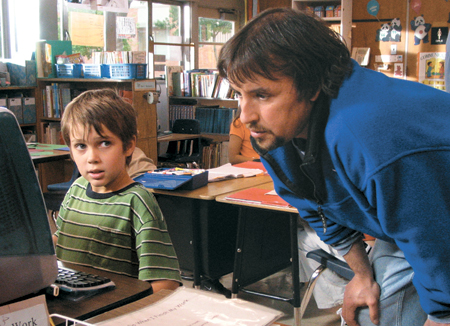 |
Richard Linklater directing Boyhood |
Well if there is one it can only be good. Yes, it’s interesting that many critics have put Boyhood as their number one film of last year, and Linklater is one director who has returned to a certain sort of Rohmeresque cinema. And of the people you mention, I think he is the most talented and rewarding. Yet as much as I like Linklater’s movies, none have done for me what The Green Ray or My Night with Maud has done for me.
I think Rohmer’s influence can only be good if it’s there, because for one thing he’s interested in making films about ordinary people, and that’s nice because we may learn from that. I’m not sure what we’re going to learn from superhero movies and genre movies. I’m not putting those down necessarily, but he was concerned with the ups and downs of everyday life as lived by ordinary, admittedly middle-class, usually white, Europeans, but I think the situations he deals with are fairly universal and he deals with them very honestly. The characters, as I say, are not stereotypical. The stories are small and very personal. He didn’t waste money. He proved you could do something remarkable without having to have huge budgets and special effects, and I think that’s great at a time when far too much cinema is gargantuan and obscenely expensive. And what do we get out of it? I think this is why some people keep coming back to Eric Rohmer, because the rewards are endless.
Interview by Simon Hitchman, © January 2015 - please do not reprint or reuse without permission. |